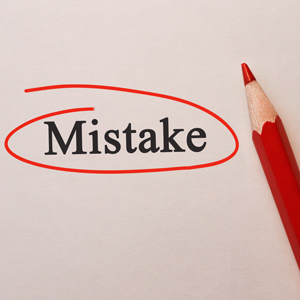Writing Marketing Content: It’s All About Your Audience
I was talking to a small gathering of marketers the other morning and I got carried away and started ranting about poorly written content (I’m known to do that, probably too often). What I said was that even though there are thousands of great blog posts and articles providing good advice on marketing communications, I still see far too many marketers ignoring that advice. So, I thought that if I kept my advice (which isn’t original) short, maybe someone will listen.
Whenever you write, be sure you have the right answers to the following questions:
- Does your audience believe your content addresses a need of theirs?
- On reading the first paragraph or two of your content, does your audience know whether or not they should continue to read?
- What do you want your audience to do when they’ve read your content?
I can’t say it too often – you have to write about something your audience cares about. You have to give them value, with your words, or they’ll stop reading right away. No “Our company is the greatest because . . .” or “Our company did this or that . . . .” Good for you – but why is it good for me as the reader. If I don’t see the value that I’m likely to get in the first sentence or two, you’ve lost me as an audience.
What’s the purpose of your content? Is it going to offer a solution? Is it going to entertain me? Is it going to offer me advice or tips on how to do something? You need to make sure the reader quickly knows what’s coming in the content, and then produce what you’ve promised. That way you match your audience’s immediate need (solution, entertainment, advice, etc.) with your content and your audience is far more likely to get value from the content.
So your audience has read your content. Now what? You need to provide some sort of guide to action, or why did you bother with the content in the first place. It can be anything – links to more information, phone number to call, a way to respond, events to sign up for . . . whatever. Get your audience to act.
For More Information
- 11 Smart Tips for Brilliant Writing – Copyblogger
- The Gobbledygook Manifesto – David Meerman Scott
- 10 Tips for Writing that Sells – Portent
Righting Writing Wrongs
The following 10 errors in grammar and style bug me. When I’m reading content written by a professional and come across one of these, I stop reading. And I wonder why a “professional” is making this kind of mistake. I’ll continue to read, usually, but I’m now questioning the credibility of the author. There’s no excuse for making these mistakes. So just follow my advice and your credibility as a writer will go unscathed.
Comprised of
This one’s easy. Comprised of is wrong. Always. Just don’t use it. It drives me crazy when I read it. If you feel that you must use comprise, use it without of. Wrong: An office is comprised of desks, chairs, and computers. Right: An office comprises desks, chairs, and computers. Unfortunately some dictionaries are allowing the use of comprised of because it’s been misused so much it’s now somewhat commonplace and therefore somewhat “acceptable.” Not by me!
, and
Place a comma before and when it introduces an independent clause but not when it separates two predicates. What’s that mean you ask? Notice that in “The early records of the city have disappeared, and the story of its first years can no longer be reconstructed” the group of words before the comma has a subject (records) and a verb (have), and the group of words after the comma has a subject (story) and verb (can) as well. In this case, use the comma. In “He has had several years’ experience and is thoroughly competent,” don’t put a comma before and because He is the subject of the group of words before and (“He has had several years’ experience . . .”) as well as after (“He is . . . thoroughly competent.”).
Capitalized Words
Don’t capitalize words willy-nilly. You capitalize a word when it’s a name or a title. It’s not good enough to just be a noun, even an important noun. So if you’re writing about a Marketing Department, don’t capitalize it, like I just did, unless you’re talking about a specific marketing department that’s officially named Marketing Department.
It’s its
It’s means it is. Always. It’s a contraction like don’t (do not), shouldn’t (should not), won’t (will not). You get the point. Its is the possessive of it. It belongs to or possesses something. “My iPhone lost its connection.” We often confuse the two because most possessives use an apostrophe: “I lost my iPhone’s case. Yes, that’s right, I lost its case.” If you’re not sure, just read the sentence as if it says it is. If it doesn’t make sense, then it’s its.
Then than
Use then to refer to time. Use than to compare two things. If you’re not looking to know when (then) use than. Now isn’t that easy.
Dangling participles (What?!)
A participial phrase at the beginning of a sentence must refer to the grammatical subject. Participial phrases are short groups of words that often begin a sentence to add vigor to your writing, sometimes combining two short sentences or thoughts. The problem occurs when the phrase doesn’t modify what immediately follows. Wrong: “After rotting in the cellar for weeks, Jack threw away the oranges.” This sentence smells. The subject of the sentence is Jack, so the sentence is saying that Jack is rotting in the cellar. But you really want to say that the oranges are rotting. Right: “After rotting in the cellar for weeks, the oranges were thrown away by Jack.”
Commas again
Enclose parenthetic expressions between two commas. Wrong: “Jane’s husband, Charles paid us a visit.” Put a comma after Charles as well as before. It’s called a parenthetic expression because you could also put parentheses around the expression: “Jane’s husband (Charles) paid us a visit.” You don’t really want to write the sentence without commas because that might imply that Charles was only one of Jane’s husbands.
Different than
Different than, like comprised of, is wrong. Always. We’ll often. Just don’t use it. One thing differs from another, so use different from. The issue, of course, is that many folks, even those who should know better, say it’s okay to use different than when the writing is less formal or sounds better. Just don’t do it!
” “
I often see writers use quotation marks to emphasize a word. Don’t do it. Use quotation marks around words or sentences because you are quoting something. Or use quotation marks around a word or phrase when you are trying to imply so-called. In the first paragraph of this blog I referred to a “professional.” The quotes mean that I am referring to a so-called professional. Note that when I actually use so-called in front of the word, I no long put that word in quotation marks. You can also use quotation marks when you use words in special ways, such as irony or slang. Just don’t use quotes for emphasis. Good writing will take care of that.
However,
Avoid starting a sentence with however when it means nevertheless. Wrong: “The roads were almost impassable. However, we at last succeeded in reaching camp.” Right: “The roads were almost impassable. At last, however, we succeeded in reaching camp.” It is proper, however, to use however to start a sentence when it means in whatever way or to whatever extent. Right: “However discouraging the prospect, he never lost heart.” Note that however in this sense is not followed by a comma.

